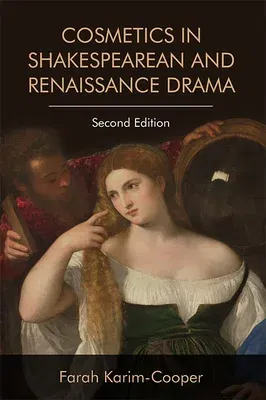Farah Karim-Cooper
(Author)Cosmetics in Shakespearean and Renaissance DramaPaperback, 3 April 2019

Qty
1
Turbo
Ships in 2 - 3 days
In Stock
Free Delivery
Cash on Delivery
15 Days
Free Returns
Secure Checkout

Print Length
232 pages
Language
English
Publisher
Edinburgh University Press
Date Published
3 Apr 2019
ISBN-10
1474452728
ISBN-13
9781474452724
Description
Product Details
Author:
Book Format:
Paperback
Country of Origin:
US
Date Published:
3 April 2019
Dimensions:
23.11 x
15.49 x
1.52 cm
Genre:
British
ISBN-10:
1474452728
ISBN-13:
9781474452724
Language:
English
Pages:
232
Publisher:
Weight:
340.19 gm